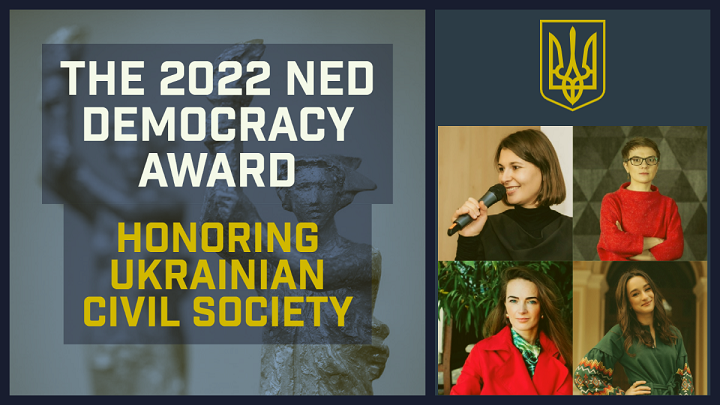History tells us war is a question of will, @general_ben tells @FukuyamaFrancis @americanpurpose. One reason why #Ukraine will defeat #Russia in the coming months & threaten their position in #Crimea. https://t.co/iskMIDHdpM via @YouTube
— Democracy Digest (@demdigest) May 23, 2023
Ukraine posed no conceivable threat to Russia’s security. And yet, according to many American policymakers and analysts, NATO is to blame for Putin’s craziness, notes Alexander J. Motyl, a professor of political science at Rutgers University-Newark. The latest example of such poor analysis is a full-page advertisement in the New York Times (paid for by the Eisenhower Media Network).
The signatories – including Jack Matlock, former U.S. Ambassador to the U.S.S.R. and economist Jeffrey Sachs – fail to see the obvious: that their obsession with Russia, the United States and the West misses that the decision to launch the war was made by Putin. As former President Bill Clinton recently revealed, Putin hinted at his aggressive designs in 2011, he writes for The Hill:
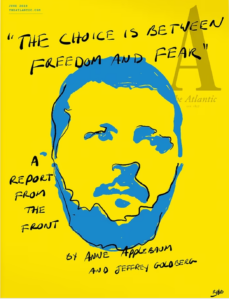 Just how should the United States negotiate with an autocrat who’s invaded Georgia and Ukraine, formally annexed four Ukrainian provinces and Crimea, and committed genocide in Chechnya and Ukraine? How should it talk to a man who is obsessed with power, routinely kills his opponents, irresponsibly threatens to use nuclear weapons and has no qualms about sending hundreds of thousands of his own citizens to their deaths?
Just how should the United States negotiate with an autocrat who’s invaded Georgia and Ukraine, formally annexed four Ukrainian provinces and Crimea, and committed genocide in Chechnya and Ukraine? How should it talk to a man who is obsessed with power, routinely kills his opponents, irresponsibly threatens to use nuclear weapons and has no qualms about sending hundreds of thousands of his own citizens to their deaths?
If Russia is defeated in Ukraine, the consequences will reverberate around the globe, says Taras Kuzio, professor of political science at the National University of Kyiv Mohyla Academy and author of “Genocide and Fascism. Russia’s War Against Ukrainians.”
China is powerful enough to survive such a shock but would be geopolitically weakened, he writes for the Atlantic Council. The Belarusian and Iranian regimes would face a far more uncertain future and might not survive. Meanwhile, Armenia may find that despite its current misgivings, the defeat of Russia could allow Yerevan to return to the path of European integration.
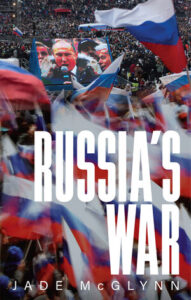 Drawing on media analysis and interviews with ordinary citizens, officials and foreign-policy elites in Russia and Ukraine, Jade McGlynn’s Russia’s War explores the grievances, lies and half-truths that pervade the Russian worldview and exposes the complicity of many Russians, who have invested too deeply in the Kremlin’s alternative narratives to regard the war as Putin’s foolhardy mission.
Drawing on media analysis and interviews with ordinary citizens, officials and foreign-policy elites in Russia and Ukraine, Jade McGlynn’s Russia’s War explores the grievances, lies and half-truths that pervade the Russian worldview and exposes the complicity of many Russians, who have invested too deeply in the Kremlin’s alternative narratives to regard the war as Putin’s foolhardy mission.
McGlynn, a specialist in the Department of War Studies, King’s College London, offers a tantalizing glimpse into the Russian public’s perception of the war in Ukraine, says Sergey Radchenko at Johns Hopkins University. “Do the Russians care? McGlynn provides the answer in a gripping narrative that brings out the nationalist fervor, the cautious skepticism and the mind-boggling indifference of those on whom Vladimir Putin counts for support.”
Russia’s invasion served as a wake-up call for the EU to guard against authoritarian influence, Adam Holesch and Piotr Zagórski write for the LSE. In a new study, they show that even the European far-right has not been immune to the war’s fallout. Indeed, after the invasion, Putin’s regime became a toxic association for populist radical right parties.
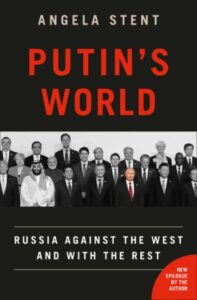 Instead of uniting democracies around the world, the war in Ukraine has divided them, argues Hans Kundnani, Head of the Europe Program at Chatham House. The self-centred approach of the West has been harmful to its own influence among non-Western democracies at a time when it needs them more than ever.
Instead of uniting democracies around the world, the war in Ukraine has divided them, argues Hans Kundnani, Head of the Europe Program at Chatham House. The self-centred approach of the West has been harmful to its own influence among non-Western democracies at a time when it needs them more than ever.
If we were to take the idea of a democratic coalition seriously, we would first need to figure out – collectively – what the shared interests we had. Indeed, a fascinating experiment of its own. But instead, we in the West unilaterally decided what these interests were. We then expected the non-Western democracies – including the world’s largest democracy of India – to simply fall in line, he writes for the International Centre for Defence and Security (ICDS).
The Russian Armed Forces pose a significant challenge for the Ukrainian military on the defense, according to new paper published by Jack Watling and Nick Reynolds of the Royal United Services Institute. Nevertheless, if Ukraine can disrupt Russian defenses and impose a dynamic situation on them, Russian units are likely to rapidly lose their coordination.
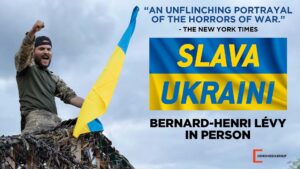 As the Ukrainian General Staff prepares for its much-heralded counteroffensive, retaking Crimea is at the top of the operational wish list, adds Richard D. Hooker Jr., previously Dean of the NATO Defense College, Special Assistant to the US President and Senior Director for Europe and Russia with the National Security Council. Some experts, including senior US officials, consider this an unrealistic aim. Nevertheless, while daunting, the task is far from impossible, he writes for the Atlantic Council.
As the Ukrainian General Staff prepares for its much-heralded counteroffensive, retaking Crimea is at the top of the operational wish list, adds Richard D. Hooker Jr., previously Dean of the NATO Defense College, Special Assistant to the US President and Senior Director for Europe and Russia with the National Security Council. Some experts, including senior US officials, consider this an unrealistic aim. Nevertheless, while daunting, the task is far from impossible, he writes for the Atlantic Council.
Recent research confirms a strengthening of Ukraine’s civil society, albeit with challenges around citizen engagement, capacity, and financing.
After the Euromaidan Uprising, Ukrainian civil society strengthened thanks to the inflow of new CSOs, active citizens, and volunteers, NORC’s Ritu Nayyar-Stone reports. The sector gained greater legitimacy in Ukraine and a higher level of citizen trust, and the culture of organizational development and self-awareness about its impact also improved. However, financial diversification, uneven development of civil society, capacity, and citizen engagement remained as challenges.
